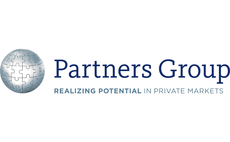
Q&A: KKR's Joe Bae
KKR last week announced a final close of $6 billion on its second pan-Asia fund, the largest vehicle of its kind ever raised in the region. Joseph Bae, KKR's head of Asia, tells AVCJ how it will be deployed
Q: KKR Asian Fund II is by some distance the largest pan-regional fund ever raised. Is $6 billion too big?
A: We were able to raise $6 billion because we have developed a track record over the last 6-7 years where we have invested more than $5.5 billion across 30 investments and generated very good returns relative to our peers and the public markets. We have also provided major co-investments in these deals which are greater than $1 billion.More importantly, we have increased the capabilities of our platform, relative to 2007 when we raised Fund I. We have four times as many executives on the ground and have expanded our regional footprint from two offices to seven.
Q: What other factors were there when setting the fund size?
A: First and foremost, we wanted to raise an amount that we feel very comfortable that we can deploy productively and generate top quartile returns - and that is why we set a $6 billion hard cap. For this pool of capital, relative to the first fund, our hope and expectation is that we will continue to be more active in markets like Japan, Korea and Australia, which is where you find the largest deal opportunities in terms of buyouts. And we are certainly going to remain active in the emerging markets - China, India and Southeast Asia.
Q: What are the particular forces that will drive more deal flow?
A: In Korea, valuations are quite interesting relative to the last five years and we think we are at a pretty good entry point. With Japan, there has been enormous change with "Abenomics" and structural reforms that ultimately will lead to more activity in terms of corporations divesting non-core assets, enabling firms like ours to work with high quality businesses. Australia is a productive market for us, and we will remain opportunistic. We made our investments in Seven Media and Bis Industries back in 2006. After that we didn't see great risk-reward for four years - we looked at many deals but we just didn't get comfortable with the valuation and growth environment - before doing GenesisCare in 2012.
Q: Many of these larger deals are intermediated. How do you deal with competition?
A: All GPs would love to do proprietary deals if they can and we have localized our individual country teams to optimize sourcing capabilities. Having said that, if you look at Intelligence and Oriental Brewery [in Japan and Korea, respectively] they could end-up being two of the most successful deals in Fund I, and both came out of auction situations. The differentiator in returns wasn't based on capital structure; it was our ability to dramatically change the growth trajectory and operational performance of those businesses under PE ownership with our global-local and partnership approach.
Q: What are the prospects for the major growth markets?
A: China has gone through a deceleration in growth rates, which has led to achange in investor sentiment in the last 18 months. But if you take a step back and ask if we are still confident in the long-term prospects of China, we would say we are very excited. Would I rather have raised a large pool of capital in 2007 when public market valuations were at least 35x price-to-earnings? No. I'd much rather be in the market as it is today where there is more dislocation, more rational valuations, and capital is a lot more scarce than it has been in the past. For India, it's a different story. The frustrations for private equity in the last five years have been driven by a fundamental lack of government-led reforms enabling faster economic growth, particularly in terms of building capacity, such as infrastructure.
Q: Do you expect to see more of these in these markets?
A: It's difficult to find actionable attractive control deals, especially in China where many of these growth businesses are essentially first-generation entrepreneurs. In India, it's a little bit easier because you have second- and third-generation families running the businesses and succession issues are more prominent. We hope that over time, even in China, control transactions will become more common, but our business model isn't predicated on having control. The primary filter is the quality of the business and the quality of our local partner. We would much rather be a minority investor with a world-class local entrepreneur as our partner than trying to own 51% of a company with a poor management team or a local entrepreneur we are not that excited about.
Q: Are there plans to do more beyond traditional PE?
A: Over time, if you really look out at the next 10, 20, even 30 years in Asia, you need to have the ability to do more than just private equity - you will need to be flexible in terms of how you partner with the families and companies. This is why we're pushing into other businesses like alternative credit. Private equity is not the form of capital that makes sense to everybody. A business may need more of a structured equity solution, a structured debt solution, and our firm is evolving in a way globally and certainly here in Asia to where we want to have the flexibility to really work up-and-down a capital structure with a business to provide solutions.
Latest News
Asian GPs slow implementation of ESG policies - survey
Asia-based private equity firms are assigning more dedicated resources to environment, social, and governance (ESG) programmes, but policy changes have slowed in the past 12 months, in part due to concerns raised internally and by LPs, according to a...
Singapore fintech start-up LXA gets $10m seed round
New Enterprise Associates (NEA) has led a USD 10m seed round for Singapore’s LXA, a financial technology start-up launched by a former Asia senior executive at The Blackstone Group.
India's InCred announces $60m round, claims unicorn status
Indian non-bank lender InCred Financial Services said it has received INR 5bn (USD 60m) at a valuation of at least USD 1bn from unnamed investors including “a global private equity fund.”
Insight leads $50m round for Australia's Roller
Insight Partners has led a USD 50m round for Australia’s Roller, a venue management software provider specializing in family fun parks.








